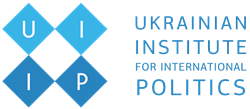Ukraine joined the LIFE Programme for climate and environment. What kind of program it this and what are the advantages of participating in it for Ukraine?
LIFE is an EU financial instrument for environmental protection and financing of environmental and climate measures. For 30 years of its existence, the program has co-financed more than 5,600 environmental protection projects in the EU and beyond.
Also, for Ukraine, participation in the LIFE program is an opportunity to implement environmental projects, learning by doing preparation and implementation of quality projects according to already developed European procedures in the field of environmental protection. This is a chance to gain valuable experience in the process of reforming the work of our environmental funds — both state and local.
According to Ruslan Strilets, the Ministry of Environmental Protection and Natural Resources of Ukraine already has more than 15 specific proposals that will be formalized into relevant projects for consideration by the LIFE program. Among the priorities are the restoration of rivers, the development of a protection fund, the construction of centers for the rehabilitation of birds and wild animals, the renaturalization of ecosystems, etc.
Goals
Contribute to the development and implementation of Community environmental policy and legislation, in particular on the integration of the environment into other policies and sustainable development.
The program occupies a niche between EU programs for research and innovation and large-scale funding programs. In this way, LIFE bridges the gap between research and policy implementation by addressing the externalities associated with environmental and climate innovation by testing and demonstrating practical solutions.
Every year, a call of proposal is launched (published on the LIFE website), which consists of two areas:
A bottom-up approach is used, i.e. project managers have to create their project and apply for LIFE funding. Projects to be financed must benefit the European Union, contribute to sustainable development and provide solutions to major environmental problems.
The LIFE programme has been in operation since 1992 and since then there have been four complete phases of the program (LIFE I: 1992-1995, LIFE II: 1996-1999, LIFE III: 2000-2006 and LIFE +: 2007-2013). During this period, LIFE co-financed more than 5,500 projects in EU countries and beyond, contributing approximately 5.4 billion to environmental protection.
The main tasks of LIFE for 2021–2027
5.45 billion euros were allocated for the implementation of the programme. This is 60% more than in the previous period. 3.5 billion euros will go to environmental projects, and the remaining 1.9 billion euros will be allocated to climate measures.
The programme includes four subprograms:
How to apply?
Applications shall be submitted through the Funding and Tender Opportunities Portal: https://ec.europa.eu/.../opportunities/portal/screen/home. More information on how to apply: https://ec.europa.eu/.../h2020.../other/event210527.htm
All available proposals for 2022 here: https://cinea.ec.europa.eu/.../life/life-calls-proposals_en
Deadlines for submission of additional projects within the framework of Calls for Proposals 2022 - October 4, 2022
Who can apply?
Individuals are not eligible to apply.
Success projects financed by the program in different countries.
In Finland, a LIFE-funded project helped land-use planners and policy-makers to make environmentally, economically and socio-culturally sustainable land-use decisions. Within the framework of LIFE, almost 1.5 million euros were allocated for this.
More projects: https://webgate.ec.europa.eu/life/publicWebsite/search


